Are you looking to ensure your business remains resilient in the face of unexpected challenges? A well-structured business continuity proposal is crucial for outlining strategies that safeguard your operations and support your team. This letter template will guide you in crafting a compelling proposal that resonates with your stakeholders. Let's dive into the essentials and discover how you can strengthen your organization's continuity plan.

Introduction and Purpose Statement
A business continuity proposal aims to outline a strategic plan to ensure operational resilience in the face of unexpected disruptions. Organizations, such as multinational corporations and small businesses, require an effective continuity framework to safeguard critical functions during emergencies, including natural disasters like hurricanes, technological failures such as data breaches, and other significant events affecting day-to-day operations. The purpose statement emphasizes the need for risk assessment, resource allocation, and recovery strategies to maintain essential services and protect stakeholder interests. By implementing a comprehensive business continuity plan (BCP), organizations can minimize potential downtime, preserve reputational value, and ensure a swift return to normal operations following a crisis.
Current Situation Assessment
The current situation assessment reveals significant vulnerabilities within organizational processes that impact business continuity. Critical functions, such as supply chain management, are heavily reliant on third-party vendors located in areas prone to natural disasters, including hurricanes and floods. Recent disruptions, such as the COVID-19 pandemic, exposed weaknesses in remote operational capabilities, affecting approximately 25% of workforce productivity. Data security remains a concern; with a reported increase in cyberattacks by 400% in 2020, the protection of sensitive information needs urgent improvement. Communication systems also displayed inadequacies during previous events, leading to delays in decision-making and operational response. This analysis underscores the necessity for a robust business continuity plan aimed at mitigating risks, enhancing resilience across all departments, and ensuring sustained operations in crises.
Proposed Continuity Solutions and Strategies
Business continuity strategies are essential for organizations to maintain operations during unforeseen disruptions, such as natural disasters, cyberattacks, or pandemics. Key components include risk assessment, identifying critical functions, and implementing recovery plans. A detailed risk assessment involves analyzing potential threats, such as floods (which, statistically, can affect areas with significant rainfall), and developing strategies to mitigate their impact. For instance, adopting cloud-based storage solutions can ensure data accessibility even during physical office closures. Additionally, regular training for employees on emergency procedures enhances preparedness and resilience. Testing recovery plans through drills simulates real-life scenarios, enabling organizations to identify weaknesses and adjust their strategies accordingly. Overall, investing in comprehensive business continuity solutions not only safeguards assets but also builds stakeholder confidence in organizational resilience.
Implementation Timeline and Milestones
The implementation timeline for the business continuity proposal outlines critical phases essential for ensuring organizational resilience. The initial phase, lasting two months, involves comprehensive risk assessment, identifying vulnerabilities across all departments. Following that, the development of a Business Continuity Plan (BCP) will take an additional three months, which will incorporate strategies to address identified risks for both operational and financial continuity. Subsequently, a two-month training session will be organized for all staff members, focusing on emergency response procedures and recovery tactics. The final phase will involve a series of scheduled drills over a three-month period to test the effectiveness of the BCP, ensuring all personnel are familiar with their roles during a crisis. Milestones include completion of the risk assessment report by the end of Month 2, approval of the BCP by Month 5, completion of staff training by Month 7, and successful execution of the drills by Month 10. Each milestone contributes to a cohesive strategy aimed at minimizing disruption during unforeseen events.
Benefits and Risk Mitigation Strategies
A business continuity proposal outlines the strategic approach organizations take to ensure ongoing operations during unforeseen disruptions, such as natural disasters or cybersecurity breaches. Key benefits include minimizing downtime (which can often exceed 24 hours in severe cases), protecting critical assets (physical and digital), and maintaining customer trust during crises. Effective risk mitigation strategies, such as implementing redundancy in data storage (backing up databases in off-site locations), staff training (regular drills for emergency preparedness), and robust incident response plans (specific procedures for various disaster scenarios), can significantly reduce the impact of potential threats. Investing in these measures fosters resilience (the ability to recover quickly from difficulties) and enhances an organization's reputation in the market.

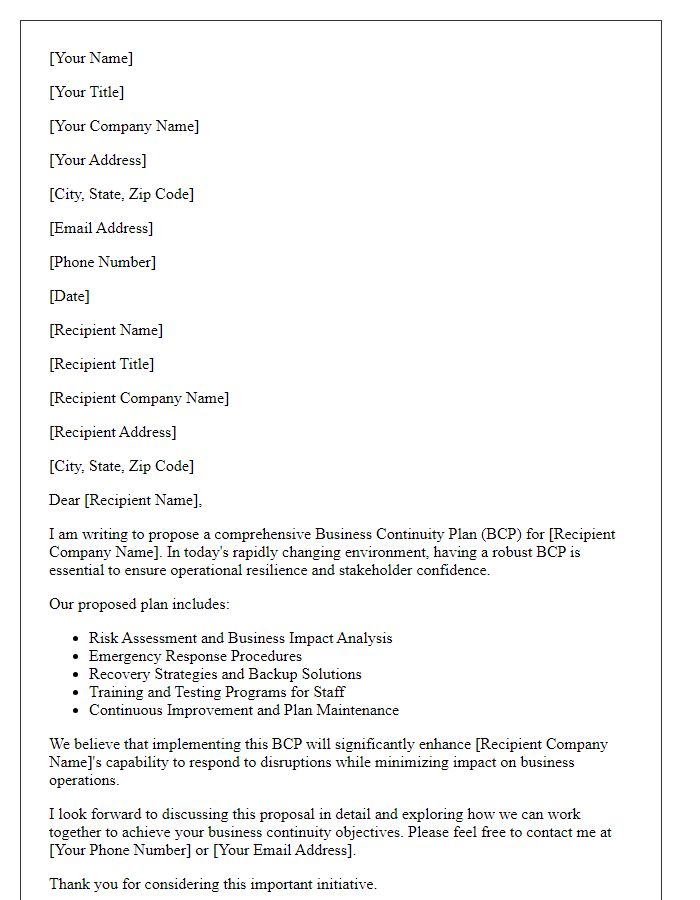
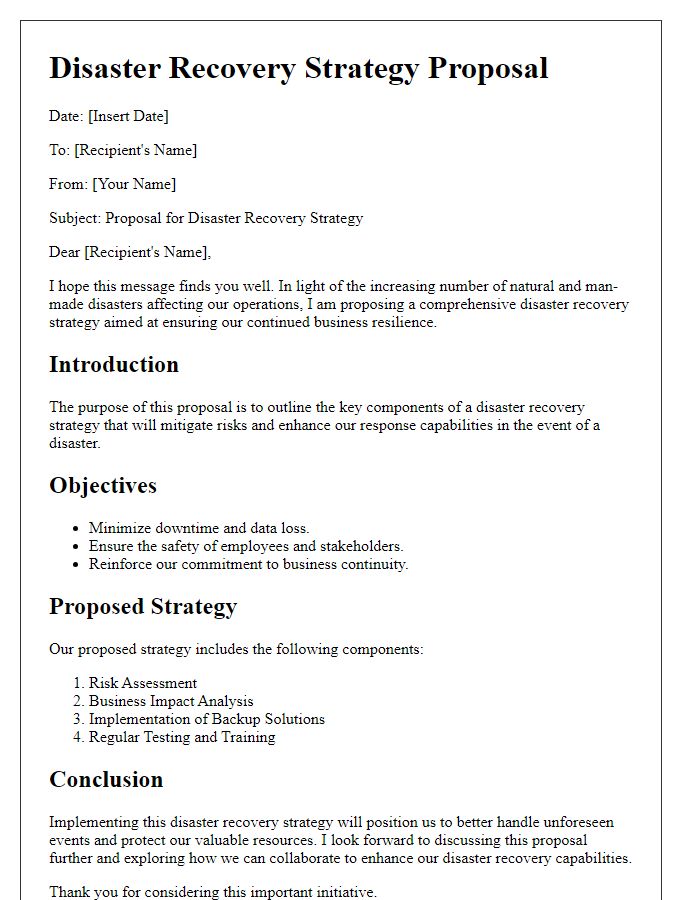
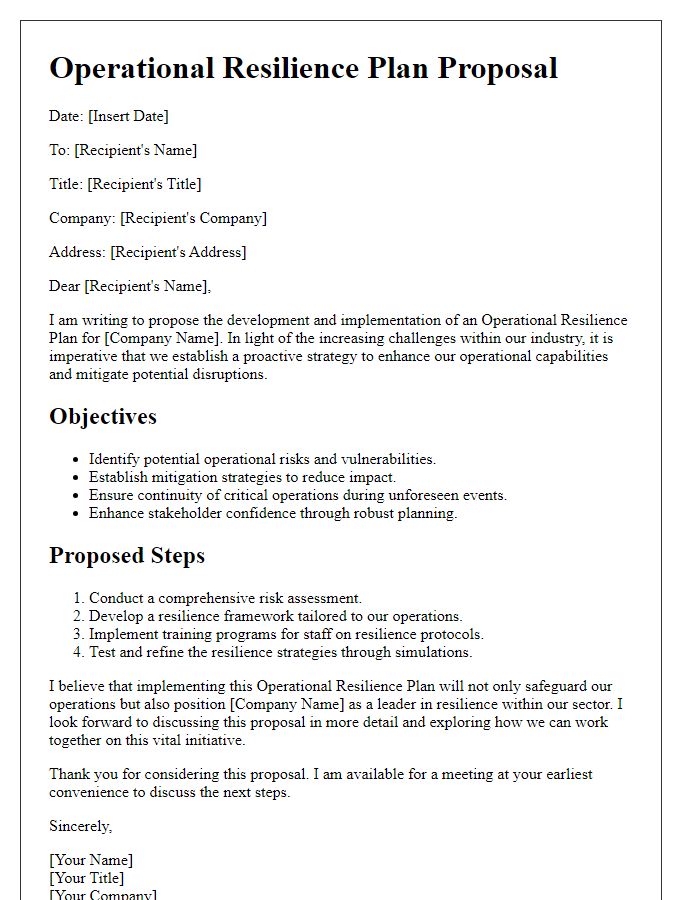
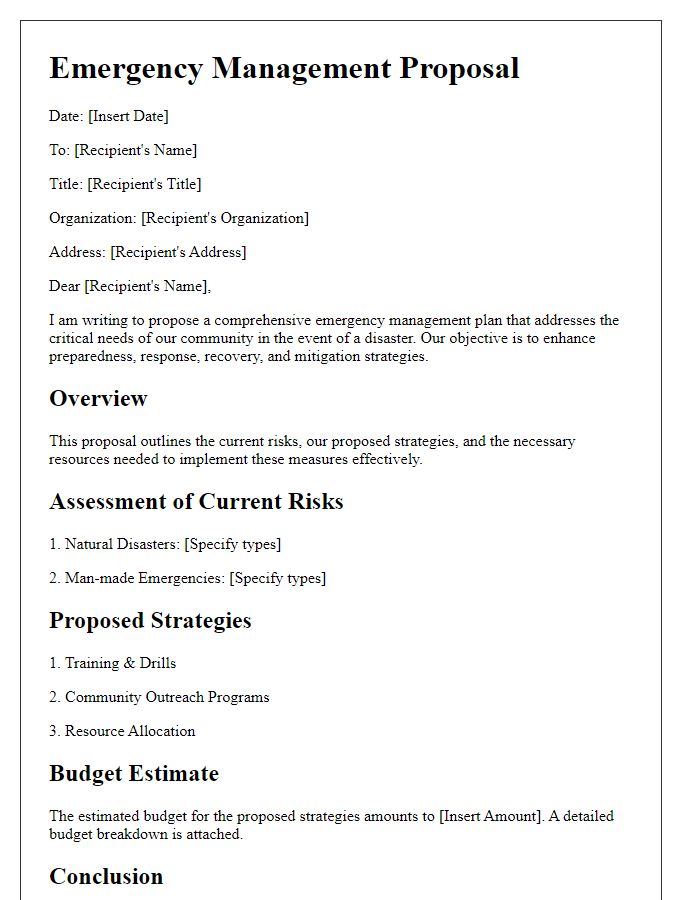
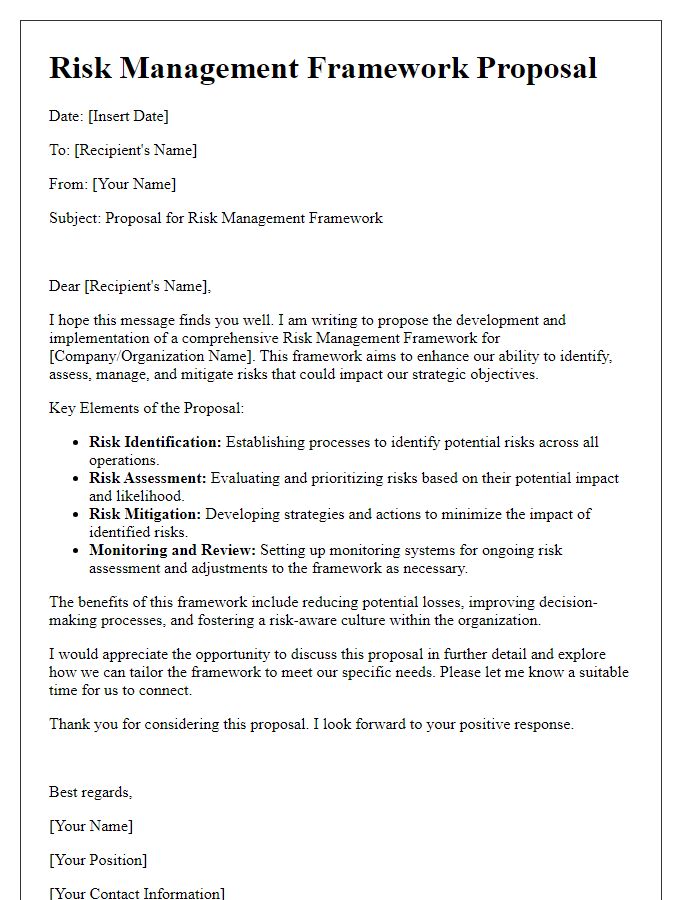
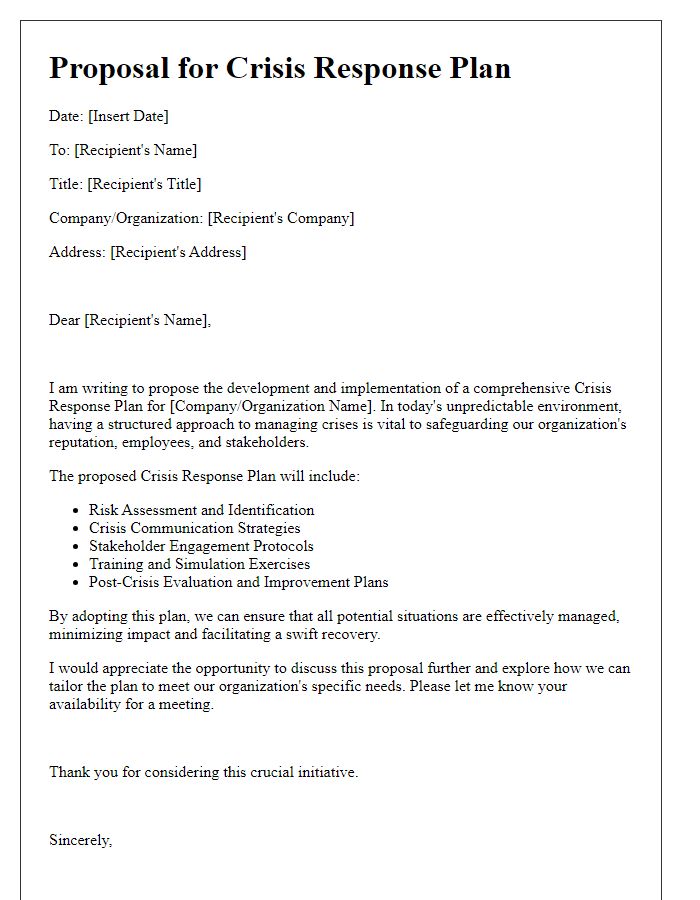
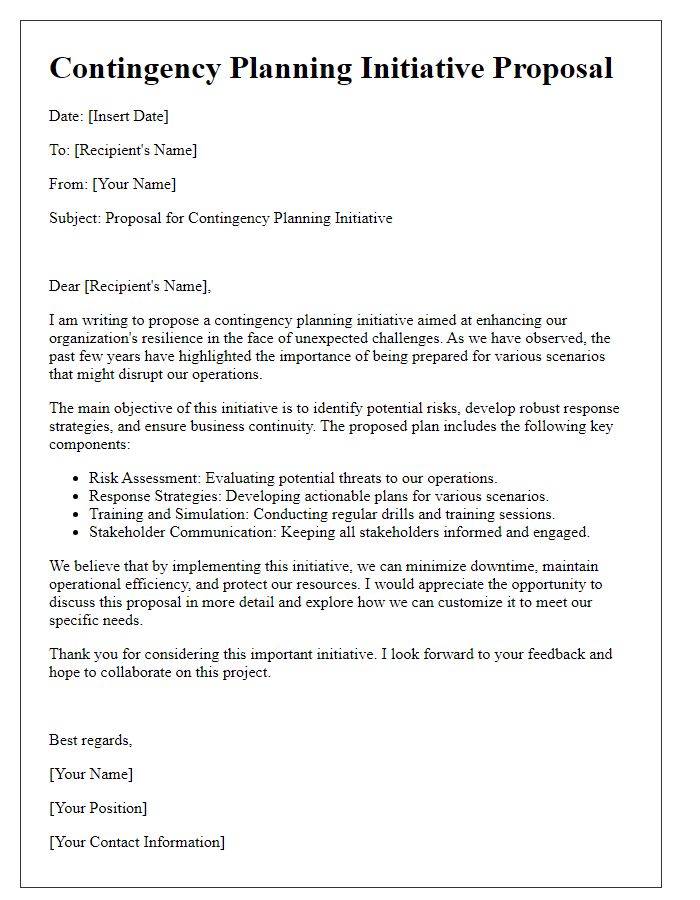
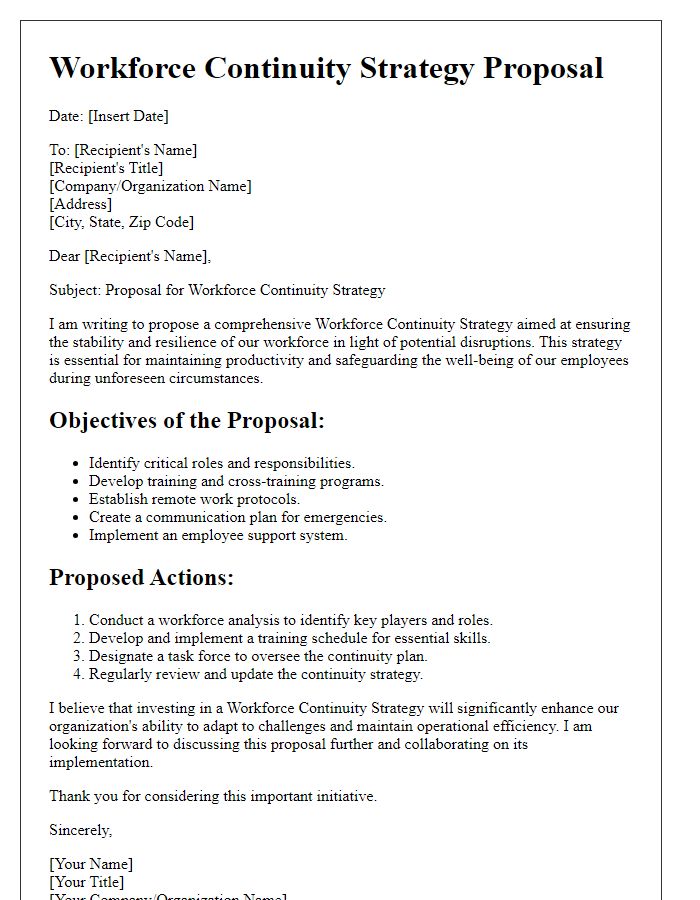
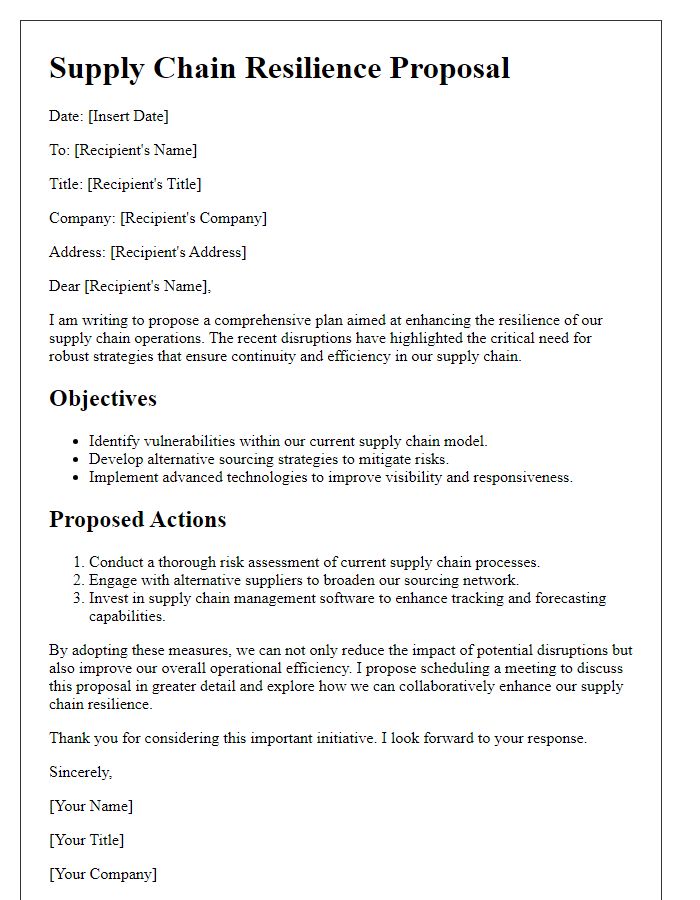
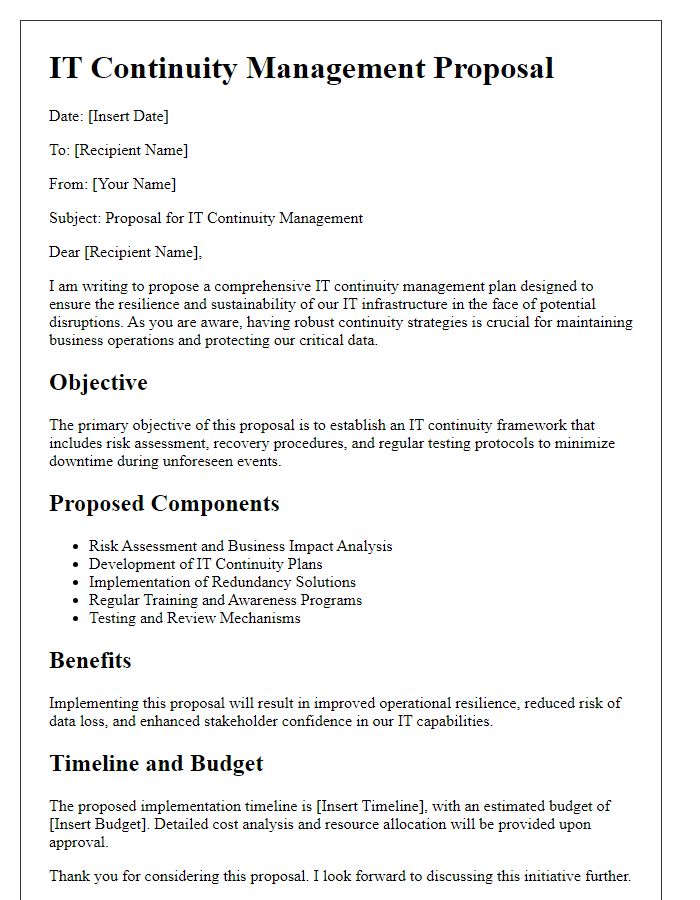


Comments